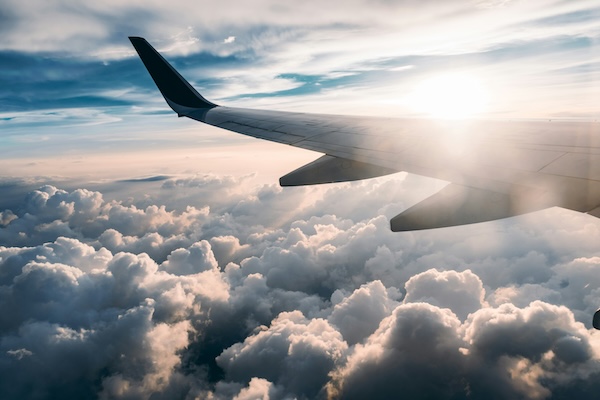
Hello, fellow world travelers! Do you often struggle with jet lag and adjusting to new time zones? I get it. The time it takes for you to adjust to the time difference can really take away from the actual fun of exploring! I understand the frustration, so I’ve compiled a list of seven ways to help you overcome this common traveler’s obstacle. Together, let’s navigate through these challenges and make your journeys smoother and more enjoyable!
Symptoms of Jet Lag
Jet lag can manifest in various symptoms that can significantly impact your well-being and functionality when traveling. These symptoms include:
- Fatigue and lethargy
- Difficulty falling asleep or staying asleep
- Difficulty concentrating, irritability, and mood swings
- Nausea or constipation
- Mental confusion
- Insomnia
- Muscle soreness and cramps
Those who travel frequently, such as pilots and flight attendants, are particularly susceptible to jet lag due to their irregular sleep schedules and changing time zones. Jet lag can also worsen with age, with older folks often experiencing more severe symptoms.
How Long It Takes for Individuals to Adjust to New Time Zones
How long it takes for someone to adjust to a new time zone depends on a multitude of factors. Typically, it takes around 1 day to adjust for each time zone crossed, but this can vary based on individual characteristics like age and sleep patterns. For example, young people might have an easier time adjusting to a new time zone than the elderly. Daily activities, work, and stress levels can also contribute to this adjustment period.
Exposure to light is an extremely important part of sleep and resetting the body’s circadian rhythms; it basically triggers alertness and sleepiness. Traveling to a different time zone results in a dramatic shift in light exposure, which disrupts the body’s sense of day and night until the circadian rhythm is reset. The direction of travel can also impact your adjustment, with eastward travel being more challenging due to the loss of time as we “chase” the sun.
For example, if you travel from Los Angeles to New York, you’re effectively losing 3 hours of your day. This means that you’d need to adjust to an earlier bedtime and wake-up time according to the local time zone. However, our body’s internal clock is naturally inclined to resist going to bed earlier, which can lead to difficulty falling asleep and waking up feeling groggy and disoriented. If you’ve ever wondered why you can’t fall asleep or if you wake up groggy despite it being “only” a 3-hour difference… well, it really makes a difference. So, understanding these factors can help you better prepare for and manage jet lag when traveling across different time zones.
The Impact of Jet Lag on Both Physical and Mental Health
Jet lag might not seem like a big deal at first, but it can take a physical and mental toll on the body and mind. People experiencing jet lag may face an increased risk of accidents and errors due to impaired cognitive function, making tasks that require concentration more difficult. Jet lag also disrupts hormone regulation, potentially leading to issues like insomnia or depression. Depending on age, it can also compromise immune function, making people more susceptible to illnesses during their travels. This is certainly not fun and can put a damper on your adventures!
The worst part? The negative effects on your mood and overall well-being can impact productivity and your overall enjoyment. You don’t want to travel to a new country just to spend half your time recovering from jet lag and adjusting to a new time zone. You want to get out there and maximize your time! That’s why it’s important to have effective strategies to mitigate jet lag’s impact on your health.
Ways to Adjust to Different Time Zones
1. Gradually Adjust Sleep Schedule
I know this seems a little crazy but preparing for your jet lag beforehand will make a HUGE difference when it comes to adjusting to a new time zone. Before your trip, it’s plan ahead and start to gradually adjust your sleep schedule to align with the destination time zone. Yes, it’s crazy! But start small, just by 1 hour, a few days before your trip.
Determine how much you’ll need to adjust your sleep and wake times based on the time difference at your destination. By allowing your body enough time to adapt gradually, you can minimize the shock of the time change. This will help synchronize your internal clock with the new time zone before you arrive. Then once you get there, your body is already getting used to the time. This approach can ease the transition and reduce the severity of jet lag symptoms upon arrival, allowing you more time to have fun!
2. Exposure to Natural Light
Remember when I said natural light is SUPER important? Make sure you prioritize spending time outdoors during daylight hours in the destination’s time zone so you can adjust quickly. Natural light plays a crucial role in regulating the body’s internal clock and promoting alertness during the day.
Aim to get 15 to 30 minutes of direct sunlight as soon as you wake up. Whether it’s going for a walk, having breakfast outside, or simply sitting in the sun to read, exposure to natural light can help synchronize your circadian rhythms with the local time zone. This helps with resetting the body clock and reducing jet lag symptoms!
3. Stay Hydrated
Hydration is key to combating jet lag and adjusting to a new time zone. I mean, hydration is key to life; it’s just good for you in general, so make sure you’re always drinking water! It’s especially important while traveling, so before, during, and after your flight, make sure to drink plenty of water to stay hydrated!
Avoid excessive consumption of caffeine and alcohol, both of which can make you dehydrated and disrupt your sleep patterns. While alcohol may initially induce drowsiness, it ultimately lowers sleep quality and efficiency. Dehydration makes it harder for your body to adapt to the new rhythm, so it’s essential to drink enough fluids. Staying hydrated not only helps you feel better during the day but also promotes better sleep quality at night.
4. Follow Destination Time Zone
Upon arrival at your destination, adapt to the local time zone as quickly as possible for meals, sleep, and activities. If the time difference is 12 hours, like going from America to Asia, you’re going to want to take a nap, but you MUST RESIST the urge to nap!
Napping excessively during the day can prolong the adjustment period. Eating and digestion promote wakefulness and play a significant role in regulating your circadian rhythm. While you’re adjusting to a new time zone, aim to eat breakfast, lunch, and dinner at your usual times based on the local clock. If you find yourself feeling super sleepy during the day, consider taking a short nap of 15 to 20 minutes to help combat fatigue without disrupting your nighttime sleep schedule… but that’s the key – only 15 to 20 minutes!!! Otherwise, you’re doomed.
5. Use Sleep Aids Wisely
When adjusting to a new time zone, sleep aids like melatonin can be beneficial in helping you sleep, especially in unfamiliar environments. Melatonin has been shown to assist people in falling asleep at times outside their typical sleep schedules, making it a great option for jet-lagged travelers.
However, like all things medical-related, it’s essential to consult a healthcare professional before using any sleep medications, especially if you have underlying health conditions or allergies. These professionals can provide guidance on the appropriate use of sleep aids and recommend suitable options based on your individual needs.
6. Stay Active
Staying active during the day can help combat feelings of sluggishness and aid in adjusting to a new time zone. It helps to engage in some light physical activity upon arrival, even if you’re a bit tired. Activities like stretching or walking (while also getting sunlight) can help stimulate circulation and alleviate fatigue!
I know this doesn’t seem desirable but incorporating regular exercise into your daily routine while traveling can actually promote better sleep quality at night by expending energy and reducing stress levels. Keeping yourself busy and engaged with others can also help distract from feelings of jet lag and provide a sense of normalcy in your new environment!
7. Practice Sleep Hygiene and Relaxation Techniques
Even while you’re traveling, prioritize sleep hygiene and relaxation techniques to maintain and even improve sleep quality. This helps alleviate symptoms of jet lag so that you can quickly adjust to a new time zone. Just like you do at home (or if you don’t currently, you should), try relaxation methods like as deep breathing exercises or meditation before bedtime to reduce stress and promote restful sleep.
Again, avoid stimulating activities like watching TV or using electronic devices close to bedtime because the blue light will interfere with your ability to fall asleep. Set yourself up for a successful night’s sleep that first night by managing light, sound, and temperature in your sleeping environment.
You can also consider bringing familiar items from home to create a comforting atmosphere. If you’re ever feeling stressed or anxious, relaxation and self-care exercises like meditation, breathing exercises, and journaling before bed also help to calm the nerves.

